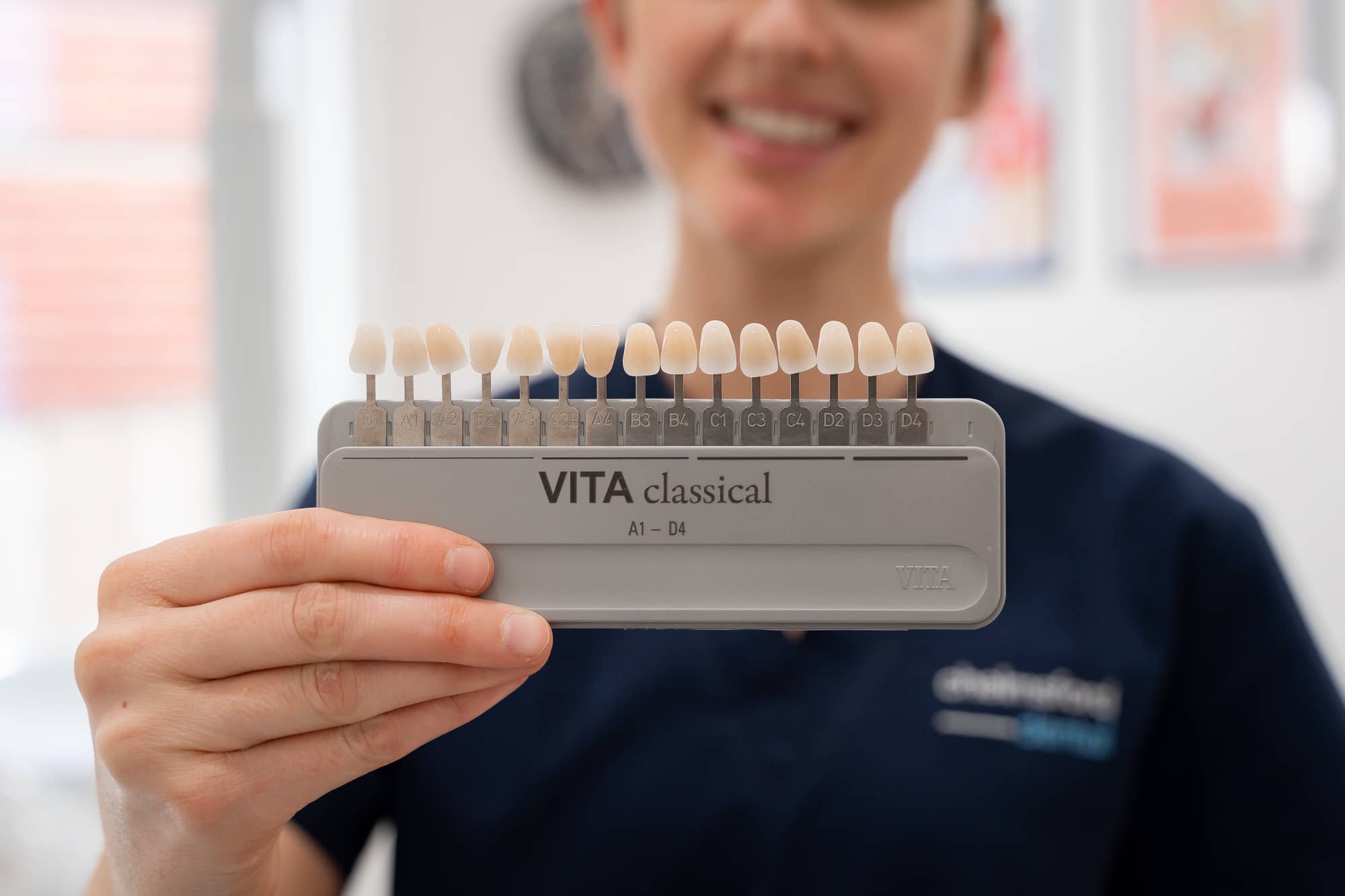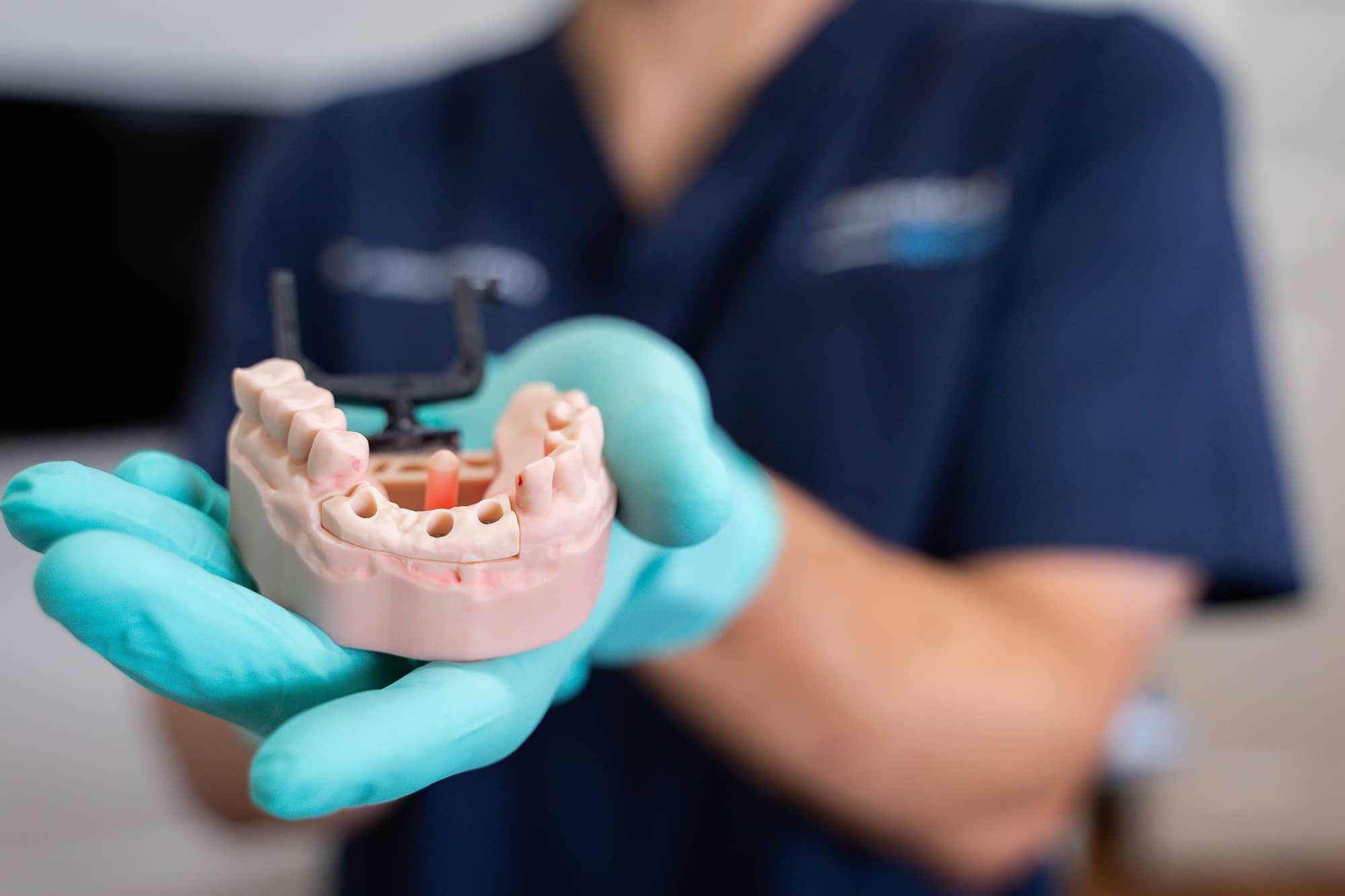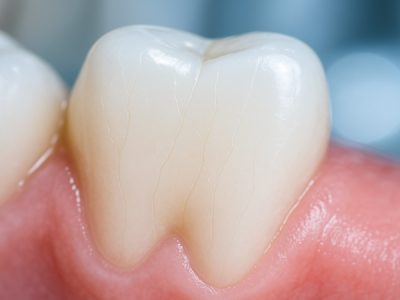There are many effective tooth replacement options for missing teeth, such as dental implants and partial removable dentures. Missing teeth are more than just an aesthetic concern. Without tooth replacement, the surrounding teeth can shift or increase the risk of decay.
Fortunately, tooth replacement options can help maintain good oral health and support your confidence In this guide, I’ll cover the 5 best replacements for missing teeth and which types we prefer here at Chelmsford Dental.

What To Do When You’re Missing Teeth
Missing teeth go beyond a drop in confidence. Ignoring missing teeth can lead to serious oral health issues, such as:
- Loss of bone in the jaw
- Higher risk of gum disease
- Shifting of surrounding teeth
- Chewing issues
- Altered bite alignment
- Increased risk of infection
- Speech difficulties
Tooth replacements help secure the future of your oral health. The right tooth replacements can help prevent jawbone deterioration, decay, and speech or chewing difficulties. If you are missing one or more teeth, I recommend taking immediate action to protect your oral health.
5 Best Replacements for Missing Teeth
1.Dental Implants
Dental implants are highly effective and one of the most common tooth replacement options. Dental implants involve a surgical procedure where an artificial tooth root is fused with the jawbone. This anchor can then serve as a base to attach a replacement tooth to. Because it fuses with the jawbone, it is an excellent option to help prevent jawbone deterioration after losing a tooth or teeth.
Advantages of dental implants include:
- Do not affect surrounding teeth
- Effective and reliable
- Can last a lifetime if they are well-maintained
- Look, feel, and function like natural teeth
- Adjacent teeth are unaffected and can remain intact
- The artificial replacement tooth is less susceptible to decay than natural teeth
Considerations of dental implants:
- Involves surgery and requires a lengthy period of recovery
- It takes time for the artificial tooth root to fuse with the jawbone
- The tooth replacement cannot be attached until the implant area has fully healed
- Not ideal for replacing multiple teeth in the same area
- More expensive than dental bridges or dentures
Ideal for:
- Individuals who want the most natural tooth replacement option
- Patients who only need a single tooth replaced or multiple teeth in different areas of the mouth
- Individuals who want a long-lasting tooth replacement solution
2. Fixed Dental Bridge
A fixed dental bridge is a great tooth replacement option for one or several teeth. I tell my patients to think of a fixed dental bridge as “bridging the gap” left by a missing tooth.
Fixed dental bridges are the most common type of dental bridge due to their effectiveness and stability. They also look and feel like natural teeth while being a more cost-effective option than dental implants.
Advantages of fixed dental bridges:
- Mimic the look and function of natural teeth
- Strong and durable
- Prevents adjacent teeth from shifting
- An effective way to restore bite force
- Cost-effective tooth-replacement option
Considerations:
- Can be difficult to clean around the bridge
- Requires multiple appointments
- A bridge that isn’t fitted properly can cause detrimental changes to the shape of the mouth
Ideal for:
- Individuals who have two healthy teeth surrounding the gap left behind by a missing tooth
- Providing a strong replacement for missing molars
Learn More: What You Need to Know About Dental Bridges
3. Cantilever Bridges
A cantilever dental bridge uses a single anchor tooth to secure the false tooth. A cantilever bridge can be a good solution for a patient who only has one healthy tooth next to the missing tooth.
Cantilever bridges are best suited to the front of the mouth as the bite force of the back teeth is too high.
Advantages of cantilever bridges:
- Can be used when there is only one adjacent natural tooth for the artificial tooth to be anchored to
- Natural looking tooth replacement solution
- Help prevent surrounding teeth from shifting
Ideal for:
- When adjacent teeth are only on one side of the missing tooth or teeth
- Replacing missing teeth at the front of the mouth
I know all the different types of dental bridges can get confusing, so I put together this guide if you would like to learn more: Types of Dental Bridges: Which Is Best For YOU!
4. Removable Partial Dentures for Missing Teeth
Removable partial dentures, also called fake teeth or false teeth, are natural-looking replacement teeth. Partial dentures consist of a removable gum-coloured plastic base that the replacement teeth are attached to.
Advantages of removable partial dentures include:
- Provides the convenience of being able to remove the dental bridge if needed
- They look and feel natural
- They are easier to repair than other tooth replacement options
- They are a cost-effective tooth replacement option and less expensive than crowns or dental implants
- Additional teeth can be added if needed if more teeth are lost — this is excellent option for saving time and money
- Improves overall appearance and offers a boost in confidence
Considerations for removable partial dentures include:
- Can be uncomfortable or feel unnatural if they are sized improperly
- They cannot be worn to bed
- Less durable and secure than dental implants or fixed bridges
- They must be maintained regularly and cleaned daily
- Susceptible to damage if handled wrong or dropped
Ideal for:
- Individuals who want a removable tooth replacement option
- Patients who are only missing a few teeth
5. Removable Complete Denture
Depending on how many teeth you are missing, you may need removable complete dentures. Whereas a removable partial denture can replace a section of missing teeth, a complete denture is necessary if a patient is missing all or most of their teeth.
I prefer dental implants or removable partial dentures where possible as complete dentures are more invasive.
Complete dentures require multiple appointments and must be carefully fitted to ensure comfort. They also cannot be worn for 24 hours straight.

Find the Right Missing Teeth Solution for You
So what are the best false teeth? There is no single answer for everyone. While these five tooth replacement options are all effective, only your dentist can advise you on the treatment that is ideal for you.
The best tooth replacement for you will depend on how many teeth you are missing, the integrity of the surrounding teeth, your age, and the condition of your gum tissue and jaw bone.
At Chelmsford Dental, we offer several options for replacing missing teeth, including dental implants, dental bridges, and partial removable dentures.
Our expert dentists are experienced in the best replacements for missing teeth and can help you find the right solution for your needs.
Book A Tooth Replacement Consultation and take the first step in finding a tooth replacement that meets your aesthetic and functional needs.




